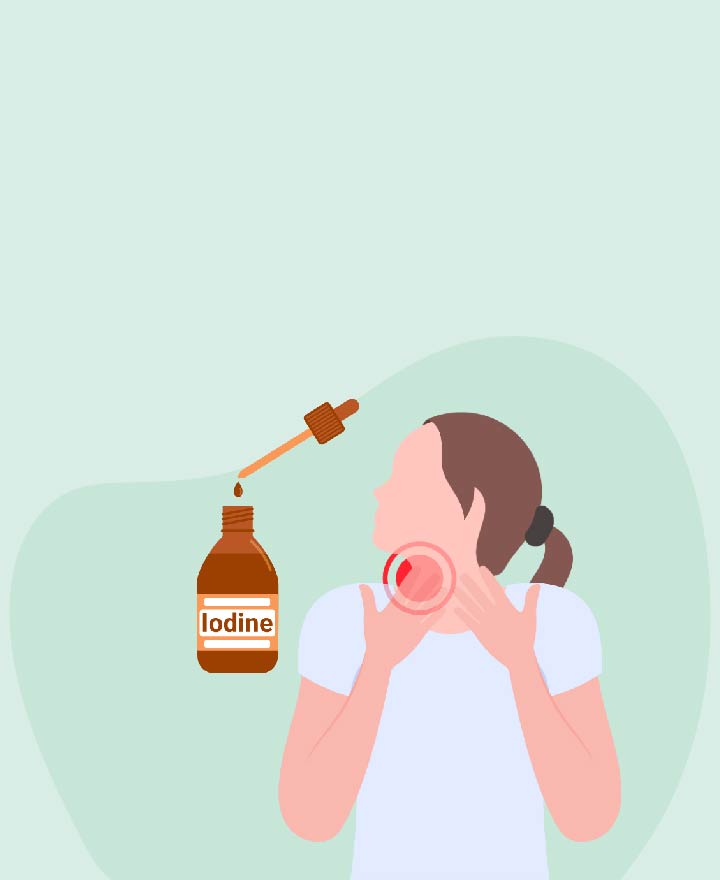

How To Deal With Iodine Deficiency With Help Of Iodine-Rich Foods
Iodine is one of the most crucial trace minerals in the human body as it helps maintain the production of thyroid hormones in the thyroid glands, which are responsible for several functions in the system. Read on to know about the importance of iodine and food rich in iodine that can help deal with iodine deficiency.
Signs of Iodine Deficiency
Maintaining right levels of iodine in the body is important as deficiency of this mineral can cause hypothyroidism. The disorder is marked by-
1. Sudden weight gain
2. Swelling of thyroid glands along with the neck
3. Dizziness and fatigue
4. Decline in cognitive activities such as memory, learning, and contemplation of data
It is essential for pregnant and breastfeeding women to keep a check on their iodine levels, as iodine deficiency can cause pregnancy complication as well as physical and mental developmental disorders in the child.
Iodine Rich Foods
Here is a list of iodine-rich foods that you can consume:
● Shrimp
● Tuna
● Cod Fish
● Seaweed
● Eggs
● Cheddar cheese
● Yoghurt
● Prunes
● Salts that are iodized
Recommended Dietary Intake (RDI)
It is important to consume the right amount of iodine as too much of this mineral can increase your heart rate and cause hyperthyroidism, while too little can lead to hypothyroidism.
An average adult with an appropriate body mass index needs to consume no less than 150 micrograms of iodine per day. Based on your body mass index, consult a physician to determine your daily intake. Fresh kinds of seafood rich in iodine contain about 85 micrograms per 100 grams of serving.
Iodised Salt
Iodized salt is the purest form of foods rich in iodine and is ideal for all dietary specifications. Since vegetarians and vegans have a hard time keeping up with their required iodine intake, they can incorporate add iodized salt in their diet.
On average, it is recommended that you consume around 5-7 grams of iodized salt. However, if your diet lacks other sources, especially kinds of seafood rich in iodine, then you can increase your intake to 8grams to prevent iodine deficiency. Remember to consult a dietician to ensure you don’t develop high blood pressure.
Supplementation & Fortification
Iodine supplements are great alternatives to meet the requirements for the mineral in the body. In case you cannot meet the daily requirement, these supplements can help maintain the levels. You can also find fortified foods rich in iodine such as cereals containing prunes and other natural foods rich in iodine.
However, it is best to consult a dietician before adding these elements to your daily routine.
Conclusion
Iodine is an essential mineral which is required for healthy functioning of the thyroid glands. Ensure to maintain right amounts as excess or lack of it can have health implications. If your dietary staples are inconsistent, opt for iodine supplements and fortified foods along with a healthy intake of iodized salt to prevent iodine deficiency.
One of the important components of our overall wellness is also being financially secured. Healthcare emergencies can happen any time, but a good health insurance can protect you from such uncertain situations. To know more about it, click here
Source: Healthline, Eufic
Disclaimer: This blog provides general information and discussions about health and related subjects. The information and other content provided in this blog, website or in any linked materials are not intended and should not be considered, or used as a substitute for, medical advice, diagnosis or treatment. Kindly contact your Doctor before starting a new medicine or health regime.
Related Articles
Want To Boost Your Immunity? Here’s A List Of Superfoods To Keep Diseases At Bay
These Foods Can Help Control The Cholesterol In Your Diet!
10 Power Foods That Help Seniors Build Strong Muscles
A Complete Guide to Increase Your Health Insurance Coverage
What is Lifelong Renewability of Health Insurance?
Published on January 12, 2023

















 Health Insurance
Health Insurance  Travel Insurance
Travel Insurance  Car Insurance
Car Insurance  Cyber Insurance
Cyber Insurance  Critical Illness Insurance
Critical Illness Insurance
 Pet Insurance
Pet Insurance
 Bike/Two Wheeler Insurance
Bike/Two Wheeler Insurance  Home Insurance
Home Insurance  Third Party Vehicle Ins.
Third Party Vehicle Ins.  Tractor Insurance
Tractor Insurance  Goods Carrying Vehicle Ins.
Goods Carrying Vehicle Ins.  Passenger Carrying Vehicle Ins.
Passenger Carrying Vehicle Ins.  Compulsory Personal Accident Insurance
Compulsory Personal Accident Insurance  Travel Insurance
Travel Insurance  Rural
Rural